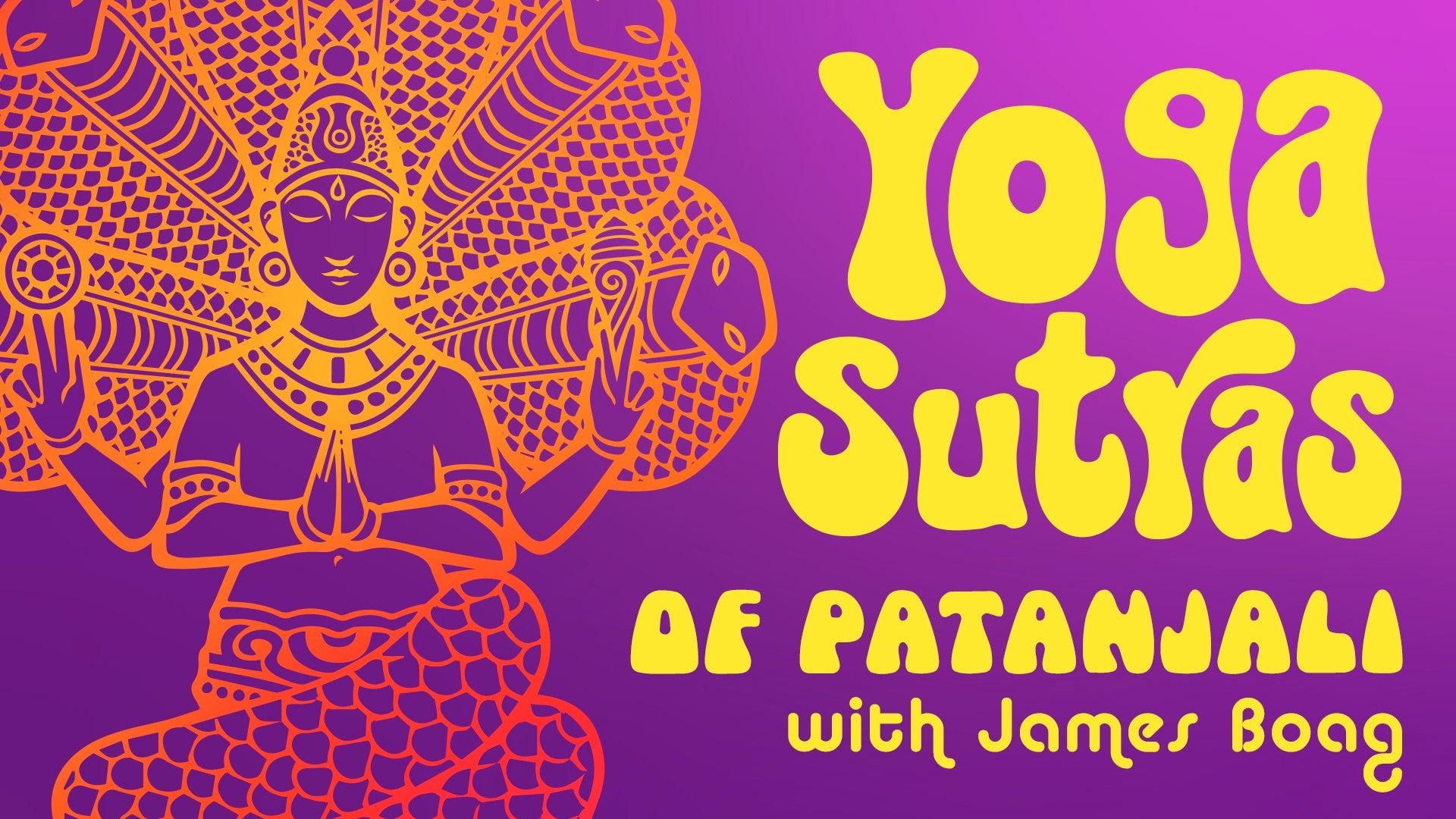Description
About This Video
Transcript
Read Full Transcript
Sutra 244 now potentially talks a little more about, and he says, So we have the word yoga here, but it's part which means communion with. From Fadhi, as Fadhi, Iyad, Iyad, Sam Priyoga. There is the Sam Priyoga that coming together with, the communion with, the Ischta Divata, which means the desired or chosen deity. Okay. What does this mean? Is a principle in the Indian system. Krishna, for example, in the bhagavad Gita says, this is the 5th verse, I think, of the 12th chapter in the bhagavad Gita.
He says, they have a bit of opportunity. What does this mean? It says, basically, for a person who has a body, for a human being who is living on the world, in the world, it's not particularly easy to relate to or identify with the 0 state, the undifferentiated ultimate reality beyond James and form. How do I relate to that? Krishna says it's much easier for those who relate to him, or who relates to an ishthadevatan. A deity, which is kind of like proximate to ultimate reality.
A symbol, an archetypal, principle, or energy that has a name that has a form that has qualities that we that makes it so much easier to relate to, but which nonetheless is emblematic of that ultimate reality and stands just next to it as it were. And so it's our link our portal, our gateway, our support, to relate to the ultimate beyond all name and form. So for example, We could relate to the sun, fantastic symbol of the source, and the enabling consciousness. If I'm having an experience and only have an experience because I have a light of consciousness. Just like here on the earth, we only have the type of experience we know because of the light of the solar power of the sun, or it could be, for example, a person's Ischideveda could be a Ganeshian.
And what does Ganeshia mean? Ganeshia means that energy that can unify all the parts that can bring all members of the group, all the members of the gang of existence into oneness that can reconcile and harmonize them all. So it's a wonderful emblem for that all inclusive energy of the ultimate 0 state wholeness ultimate supreme being reality. Oh, shiver that, which one of the literal means of shivers, that in which everything lies, our vision, the all pervasive or mother divine in whose womb all of the creation exists. Or Jesus, for example, I and my father are one said he and the Christ, the one whose consciousness resides at that junction point of the cross, or Krishna who lives from that junction place of being a Yuctor connected to the Supreme reality. So whichever is our preferred deity is the area from Spadhyay, from that constant steady inquiry and study, we can come into communion and close relationship with the aspect of the divine, the representation of that, which is beyond representation, that can then help us tune in to that state that is beyond name and form.
Another idea is that Sfadia basically means it's that constant inquiry. So as I practice, as I study, practice and study in York is the two two aspects of the same thing, two sides of the same coin, 2 wings of the same bird. As I keep exploring, It's the idea that I will attune more to what really supports my evolution, to what really helps me tune into my deeper essential reality. So as I keep practicing, I will find you not just to the deity, but also to the principles, to the choose, the ways of being that will help me grow in the direction of my deepest longings. So when I make that steady constant effort, When I remind myself that life is a laboratory, it's a playground.
It's a field to learn and to grow, and I keep practicing like that. Yes. It may happen that I develop this beautiful attunement to a deity that I can worship, I can orient to, I can use as support in my day to day life. I can offer my actions to that representation. But this sutra also encodes the idea that when I meet life with that spirit of inquiry, I will start to gain deeper understanding of how it really serves me to meet reality and interact with reality. In the commentary on this Sutra from Yasi says that as we practice when we have that diligent quality of investigation, curiosity inquiry, then he says, great riches, divers, gods, and sinda's perfected beings, we will rouse their attention and they will come and help us and participate in our practice.
Put it to the test. Boag asked us to believe nothing, but if we do make that steady diligent effort to inquire, Usually, what happens is we find stuff out, things that can be helpful to us, rise up into our awareness so we can work with them. Now, the idea of Ischta, Ischta means that which is desired, that which is a long form. Another thing I think that's encoded here in this Sutra is the idea that as we practice diligently with that spirit of inquiry and curiosity in wonder, as practice continues, It's like we begin to fathom our desires. We fine tune them.
It's the idea that our desires can be very revelatory. If we have the presence to trace them to their roots, we realize that my desire for, for example, the sweet tasting gourmet chocolate or the fresh fruit straight from the vine or the touch of my beloved or the I I I there'd been some amazing Skyscapes here the last few days, so that beautiful vision of a natural scene maybe I have a desire for some sweetness of ex external experience. But when I look into it deeply, I realize that those sweet external experiences. What they do is they bring me into a sweeter internal presence, and that's what I really long for. So as we keep practicing, there's the idea that we can kind of fathom, get deeper into our real desires, And as we keep practicing, our desires will transmute.
They will become subtler. Sometimes you may hear a phrase to the yogurt nothing is denied. And sometimes people get the wrong end of the stick here. They think, oh, I mean, I'm doing my meditation, so I can do whatever I want. The idea is that when one actually invites meditation, the med is state, what we want shifts because when we come to the med state, we're feeling kind of whole. We're feeling kind of full.
So we're much less susceptible to be pulled here and there by external desires, and we start to get greater access to those deeper subtle internal longings to actually come home to the fullness that we really are. So from Spadhi, we get to know our deeper longings more intimately and we're actually able to penetrate through to deeper layers of motivation and act then, we could say from a more soulful place. A place that is more congruent because our actions are then nourishing the whole of the system. Because if we're gonna advance in our yoga is. We can't leave any part out.
So the praxis Fadiya means studying the whole of myself, bringing all of myself into what I'm doing. And as the sutra lays out very overtly through this practice for many people, this can also bring a recognition of which divine icons, entities, beings, which cosmological forces are most propitious to help direct or help orient my own particular personal practice. But Sfad Yah, most important thing, that spirit of constant inquiry, remembering I do not know and then have you space to invite that grace of new recognitions.
Yoga Sutras of Patanjali: Yamas and Niyamas
Comments
You need to be a subscriber to post a comment.
Please Log In or Create an Account to start your free trial.










